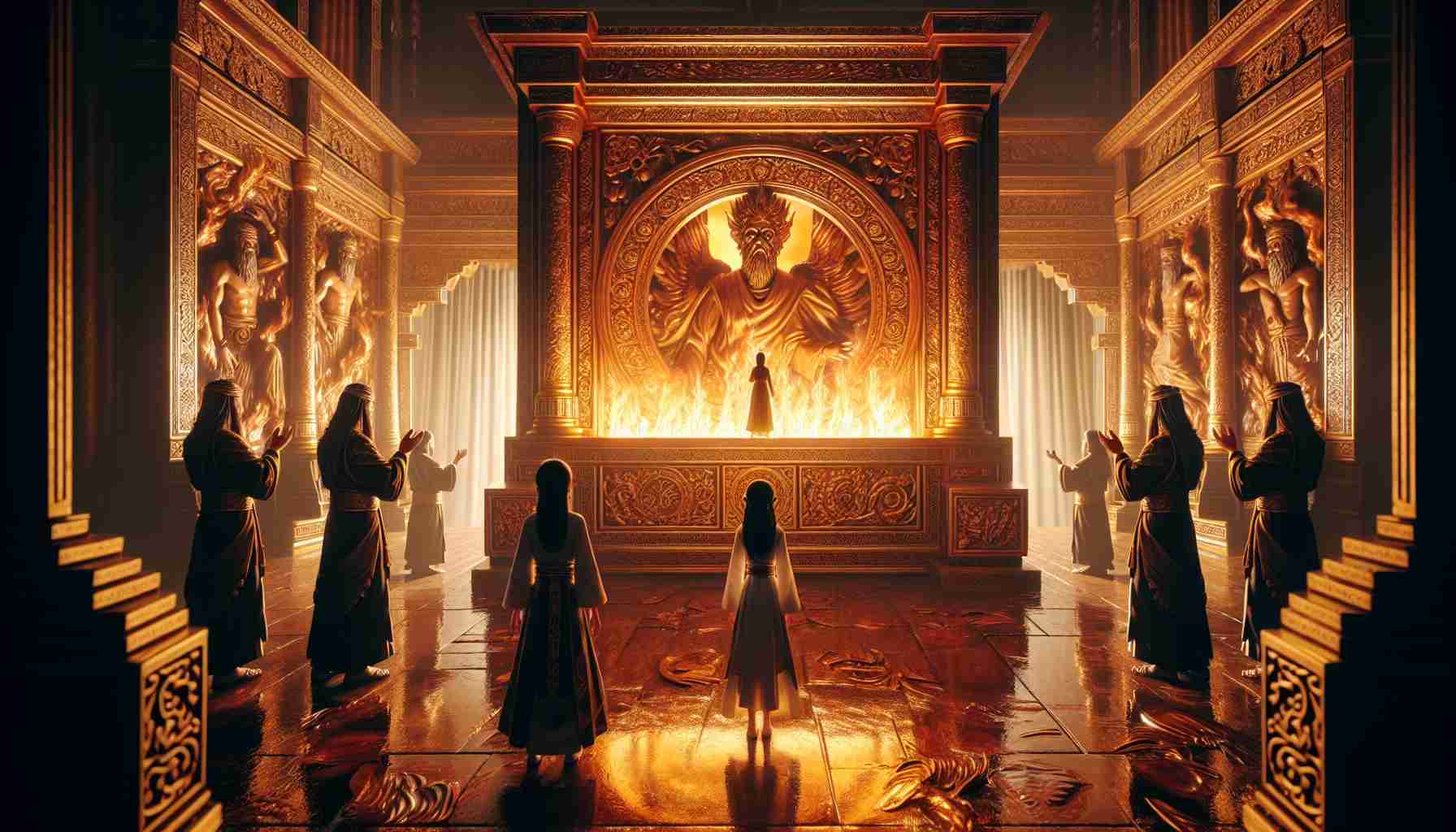

I was among the Levites who stood outside the Mishkan—the holy Tabernacle—on the day joy turned into silence. You wouldn’t know my name. I carried water and cleaned the copper basin. But I saw everything.
That morning was filled with music and laughter. It was the eighth day—the final day of dedication for the Mishkan. We watched Moses and Aaron follow every command, offering sacrifices with care and precision. The fire of God appeared, consuming the offering on the altar, and the entire camp shouted in awe. We fell to our knees. That fire was proof: God was with us.
Then came the stillness.
Nadav and Avihu, Aaron’s sons, stepped forward. They were priests—higher than most of us would ever be. They wore the sacred clothing, just like their father. But they carried their own fire, not the fire from the altar. Their offering wasn’t commanded by God.
I remember watching them walk into the sacred space. I remember the confusion on my friend Benaya’s face. “Are they allowed to do that?” he whispered. I didn’t know. They seemed so confident. So sure.
Then the fire struck.
It came out from before God, just like before. But this time, it didn’t consume an offering. It consumed them.
They fell—just like that. No scream. No last words. In a breath, they were gone.
Aaron didn’t move. He didn’t cry. He stood still, his face calm and broken all at once. I will never forget the sound of silence in the camp. No babies cried. No songs were sung. Just the crackling of the altar fire.
Later, we heard Moses speak to Aaron. He said, “This is what God meant when He said, ‘I will be sanctified through those who are close to Me.’” Moses was reminding Aaron—and all of us—that God’s rules matter, especially for those who serve Him closely.
At first, I was angry. Nadav and Avihu were good. They were holy. Why take them?
But that night, as I cleaned out the basins near the altar, I remembered how they had entered with their own fire, not the one God had lit. If even holy people must follow God’s word exactly, then how much more careful must we be?
I once thought holiness meant passion—that as long as my heart burned for God, that was enough. But now I understand: holiness also means obedience. It means fear, and respect, and doing what God commands—no more, no less.
I never forgot the fire that day. It didn’t just take two lives. It lit something inside me—something quiet and strong. From then on, I did my work nearer to the altar, but with more reverence, more care. Not because I feared punishment, but because I had seen with my own eyes what it means to stand near to God.
And I never forgot Aaron’s silence. It was not the silence of confusion. It was the silence of understanding.
I was among the Levites who stood outside the Mishkan—the holy Tabernacle—on the day joy turned into silence. You wouldn’t know my name. I carried water and cleaned the copper basin. But I saw everything.
That morning was filled with music and laughter. It was the eighth day—the final day of dedication for the Mishkan. We watched Moses and Aaron follow every command, offering sacrifices with care and precision. The fire of God appeared, consuming the offering on the altar, and the entire camp shouted in awe. We fell to our knees. That fire was proof: God was with us.
Then came the stillness.
Nadav and Avihu, Aaron’s sons, stepped forward. They were priests—higher than most of us would ever be. They wore the sacred clothing, just like their father. But they carried their own fire, not the fire from the altar. Their offering wasn’t commanded by God.
I remember watching them walk into the sacred space. I remember the confusion on my friend Benaya’s face. “Are they allowed to do that?” he whispered. I didn’t know. They seemed so confident. So sure.
Then the fire struck.
It came out from before God, just like before. But this time, it didn’t consume an offering. It consumed them.
They fell—just like that. No scream. No last words. In a breath, they were gone.
Aaron didn’t move. He didn’t cry. He stood still, his face calm and broken all at once. I will never forget the sound of silence in the camp. No babies cried. No songs were sung. Just the crackling of the altar fire.
Later, we heard Moses speak to Aaron. He said, “This is what God meant when He said, ‘I will be sanctified through those who are close to Me.’” Moses was reminding Aaron—and all of us—that God’s rules matter, especially for those who serve Him closely.
At first, I was angry. Nadav and Avihu were good. They were holy. Why take them?
But that night, as I cleaned out the basins near the altar, I remembered how they had entered with their own fire, not the one God had lit. If even holy people must follow God’s word exactly, then how much more careful must we be?
I once thought holiness meant passion—that as long as my heart burned for God, that was enough. But now I understand: holiness also means obedience. It means fear, and respect, and doing what God commands—no more, no less.
I never forgot the fire that day. It didn’t just take two lives. It lit something inside me—something quiet and strong. From then on, I did my work nearer to the altar, but with more reverence, more care. Not because I feared punishment, but because I had seen with my own eyes what it means to stand near to God.
And I never forgot Aaron’s silence. It was not the silence of confusion. It was the silence of understanding.